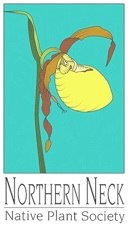The butterfly identification workshop via Zoom is open to everyone but created for people who would like to assist in this second Annual “Spring” Northumberland-Lancaster Butterfly Count. The workshop will be held Tuesday evening, May 18, via Zoom at 7 pm. The workshop will help in the identification of our local spring butterflies that may be seen during the actual count the following week. Further, life cycle and host plant information will be presented for the butterflies. The goal is to help all attendees improve their skills at identification and understanding of our local butterflies and their native host plants. There will also be a short section on tips for attracting butterflies to your garden. Participation in the workshop will be limited so register early.
The host plant information is of critical importance to all and is often misunderstood or ignored. A host plant is one that gives butterflies the shelter required for laying eggs and is the required food source for their caterpillars. While the adult may obtain nectar from a variety of flowers, the host plant is mandatory for the caterpillar so the adult female must find that specific native plant upon which to lay her eggs if her eggs are to survive to the next generation. Over thousands or millions of years, a particular species of butterflies has coevolved with one or more native plants and the relationship becomes quite specific. It may be a tree, a shrub or a herbaceous plant. Some butterflies may use several specific native plants while others may only use one. For example, consider our Virginia State Butterfly, the Eastern Tiger Swallowtail – the female can use a few different native plants including Tulip Poplar, Sweet Bay Magnolia, Black Cherry and a few others. But the more specific Zebra Swallowtail will only lay her eggs on our native Pawpaw trees because the caterpillars will only survive on the Pawpaw.
The workshop speakers will be Jeffrey Wright, the founder and compiler of the Northern Neck’s Butterfly counts (and NN Christmas Bird Counts) and Betsy Washington, retired teacher, botanist, and Board member of the NNNPS. Both presenters are certified Virginia Master Naturalists, extraordinaire.
This workshop is free, but space is limited so please register to attend by contacting Jeff Wright at pec11908@mac.com.
